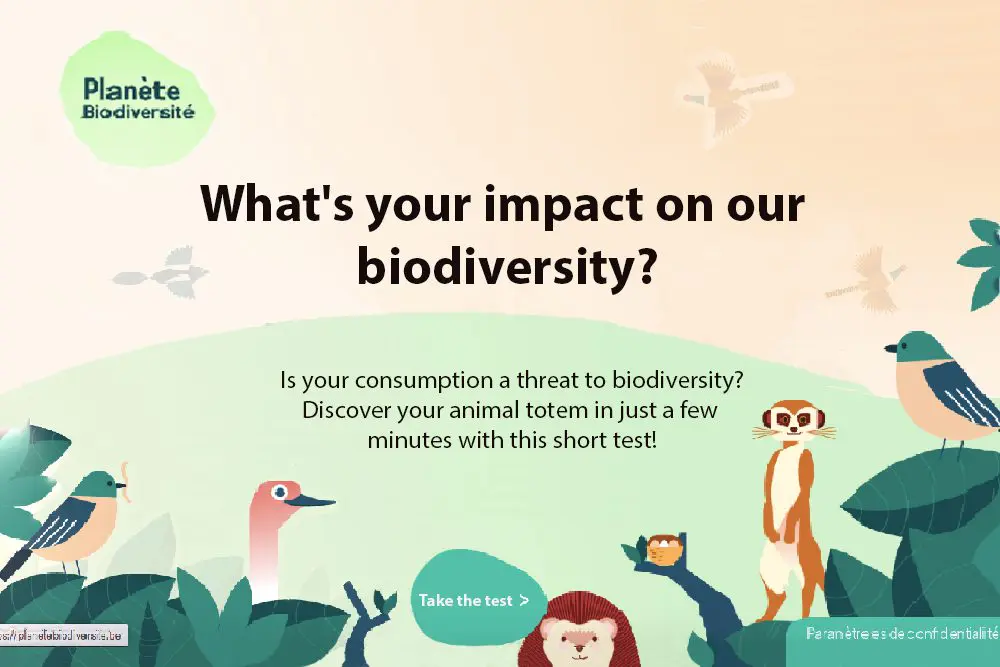Planet Biodiversity is a free educational platform in Belgium for teachers and organizers, offering practical, fun tools to inform and raise awareness among children and young people.
This morning, Zakia Khattabi took part in the activities offered to students of a technical secondary sixth form class in Leonardo da Vinci Athenaeum in Anderlecht. On the program: lesson on the theme of agriculture and a string game to better understand the importance of soils.
An experience that made the Minister declare: » Biodiversity loss affects us all. This is why we must act. The good news is that each of us can contribute to the conservation of nature and ecosystems, even in our eating habits. This is also the message of Planète Biodiversité. The launch of this educational platform in primary and secondary schools gives me hope. It allows young people to discover, thanks to simple tips, how to protect our biodiversity. Tomorrow, the Minister will participate in the presentation session given at the primary school, Pacheco Basisschool.
Who is Planet Biodiversity for?
This free website provides teachers and facilitators with educational content practical and fun to raise students’ awareness of biodiversity issues, frominformation scientifically validated. All with a timing designed to correspond to the lesson periods and a practical dashboard to ensure personalized follow-up of the class. These tools are intended for students of 3rd primary cycle (10-12 years old) and 3rd secondary cycle (16-18 years old).
Why this educational platform?
The originality of Planète Biodiversité is to offer fun activities that allow integrating biodiversity into various course subjects. Thus, we calculate the surface of deforestation by doing maths or we retrace the route of the foods that make up a spaghetti Bolognese during Dutch lessons.
The objective is to highlight how our models of consumption impact nature, sometimes thousands of kilometers from home.
A quiz with questions about everyday life also allows you to discover thetotem animal corresponding to her consumption profile and thus get an idea of swe have an impact on biodiversity.
Focus on food
This first module deals with food and discusses topics of Llivestock, farming systems, ultra-processed foods and seafood. Others are already planned.
Intensive agriculture and animal husbandry, industrial processes, ultra-processed foods and overfishing weigh heavily on nature. From the origin of food to its method of manufacture, through its processing and packaging, all these steps can have harmful consequences on biodiversity and … on humans. As we depend on nature and food for our health, it is imperative that our cultivation and breeding methods are sound. The state of biodiversity is also our health report!
Who are the promoters of Planète Biodiversité?
This achievement of FPS Health, Food Chain Safety and Environment was carried out in close collaboration with the WWF-Belgium And GoodPlanetBelgium. “For this project, we pooled our expertise to develop fun educational tools allowing students to understand in a very concrete way the impact of their daily eating habits on biodiversity. We have also made sure to give teachers a popularized scientific summary in order to better appropriate these complex subjects and transmit them in turn easily to their students, whatever the subject. »
The Museum of Natural Sciences of Belgium and UC Louvain also contributed to this initiative.
More info on https://planetebiodiversite.be/
A leaflet and an poster also exist. You can consult the video trailer as well as his subtitled version.
Originally published at Almouwatin.com







